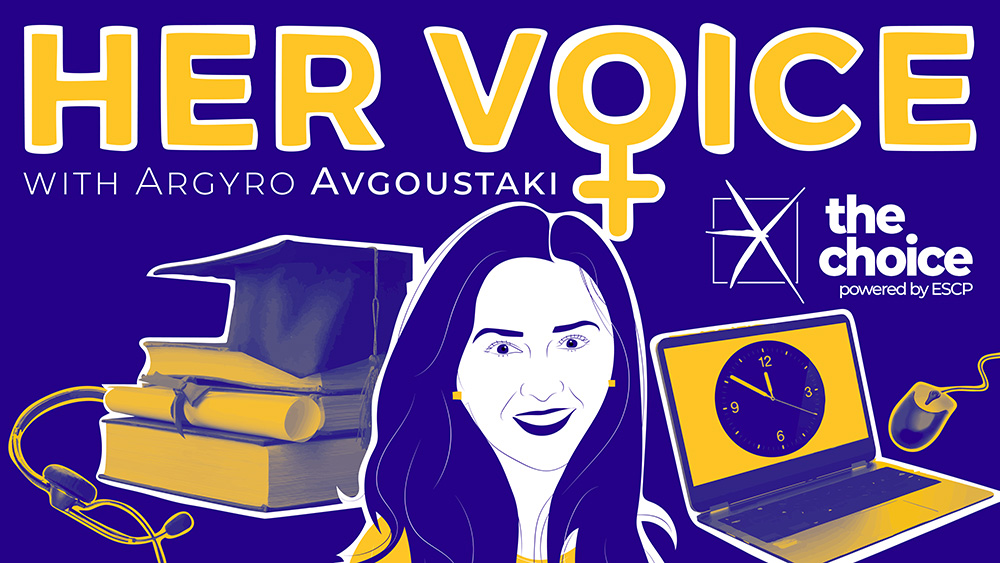On the fifth and final episode of Her Voice season one, we had the great pleasure of speaking with Argyro Avgoustaki, professor of management at ESCP and expert on the questions of high-performance work practises. With the post-Covid workplace under the microscope, Argyro’s expertise gives us a clearer view on the impact of our work cultures on employee well-being.
The democratisation of remote work and our psyches
Because of the unprecedented health crisis, many workers have had to adapt to work from home. For example, the number of remote workers in the US went from 20% before the pandemic, to 71% by the end of 2020. If some of us have adapted well to working from the comfort of our living rooms, for others, Zoom meetings have taken a toll on their mental health.
As Argyro Avgoustaki explained on the last episode of Her Voice, for some people, remote work is not necessarily good news: “In some cultures, being asked to work from home is perceived as a threat. People fear that if they are not in the office, they will be forgotten, or that their work won’t be acknowledged.” This means that for some people, the pandemic was doubled with a lingering sense of having to demonstrate one’s good intentions by working extensive hours… which eventually can result in a greater number of burn-out cases.
As time goes on, leaders are increasingly confronted with the mixed impact that remote work has on their business. In Apple’s case, management is responding to the negative consequences of remote work on productivity and employee well-being by requiring employees to return to the office for three days a week. But the employees for whom remote work is a major benefit will not be giving up without a fight.
In some cultures, being asked to work from home is perceived as a threat. People fear that if they are not in the office, they will be forgotten, or that their work won’t be acknowledged.
Why do we overwork? Intrinsic vs. extrinsic motivators and their impact on employee well-being
When considering the reasons why people overwork, we have to consider whether the incentive is coming from a pressuring manager, from the perspective of a reward, or from a keen interest in the task. These are a few of the extrinsic and intrinsic motivators Argyro Avgoustaki studied through her work alongside Professor Almudena Cañibano. And as she explained: “Extrinsic motivators are associated with negative well-being, while intrinsic motivators are associated with less negative well-being or positive well-being.”
In other words, overwork may not always feel like work at all, if the motivation comes from within: think of one’s passion for a specific practice, for example. Unfortunately, not all of us can live from our passion for piano or video games. So how can we have more satisfying work lives?
Fewer work days for better employee well-being?
According to Argyro Avgoustaki, beyond working long hours, the intensity of our work day is also part of the problem, possibly even more so. “Studies have shown that work intensity is bad for workers’ well-being. So is schedule uncertainty. If we move to a four-day workweek, and we have to do the work that we used to do in five or six days, it means that our work intensity is going to increase.” Thus having the reverse effect on our well-being than what was intended.
And when we add gender into the mix, things get even more interesting, if not more complicated. Founding member of the London CYGNA, a support group for women in academia, Argyro Avgoustaki also talked of the gender biases that still linger in academic faculties and her advice on finding your voice in this environment. Eager to learn more? Listen to the podcast for our full conversation with Argyro Avgoustaki.




